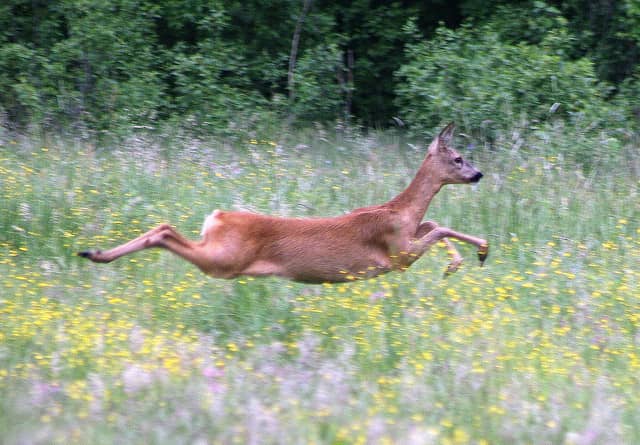Study Shows Growing Deer Population Decreases Plant Density and Diversity
OutdoorHub Reporters 01.04.13

A thriving population of just one species of deer is out-competing birds and leaving woodlands in the United Kingdom with less diversity and shrub cover below the main canopy. A study conducted by researchers from Durham University and the Food and Environment Research Agency (FERA) looked at just one species of deer, the roe deer, common in Europe, and the effect it had on ground vegetation.
The study, described as the first of its kind in the United Kingdom, revealed that woodland areas without effective deer-control measures in place are more likely to be damaged by the animal. While this fuels the fire for the argument for culling more roe deer, co-author of the study, Georgina Palmer, told the BBC this isn’t cause for an all-out war on just one species, but rather a potential link between roe deer density and decrease in shrub diversity and cover.
“Much of the recent literature on impacts of deer on their environment has focused on multi-species systems and, there, authors cannot attribute impacts they find on vegetation to one particular species,” Palmer said.
The roe deer population has been growing significantly in the 20th and 21st century after they went almost extinct in much of southern England at the beginning of the 20th century. The rise in population has spilled them over from their natural woodland habitat to agricultural grounds and other open areas.
For the study, Palmer and her team collected data on vegetation cover, diversity, and abundance at 35 woodland field sites across England during May and June in 2011 and 2012. All of the field sites were part of a Breeding Bird Survey, the main scheme for monitoring the population changes of the UK’s common breeding birds. Palmer was able to compare her findings to historic bird and deer abundance data.
England is looking at ways to establish and promote the “sustainable management of wild deer” in England and Wales, according to the BBC and Palmer’s study warns that overgrazing by deer can undermine woodland ecologies. Ecologists already know that deer threat the woods by reducing sapling growth and density, damage bark and may change the composition of under-story vegetation. Palmer is still analyzing her data to determine just how much of responsibly roe deer hold.

